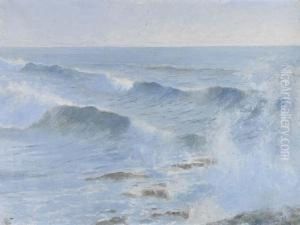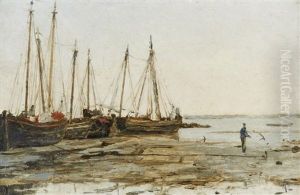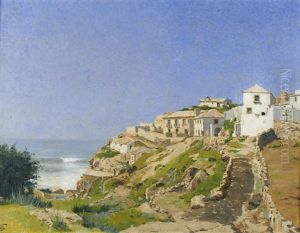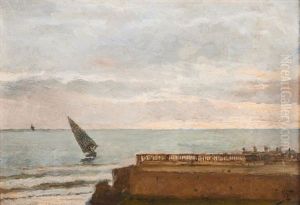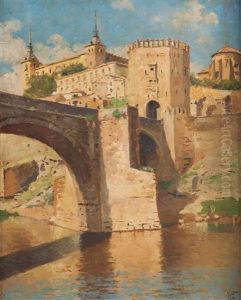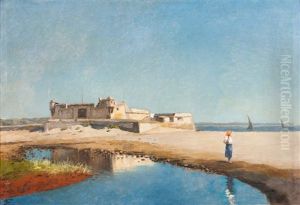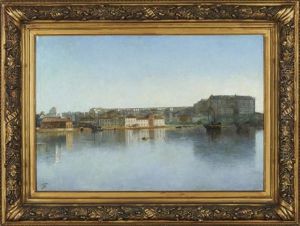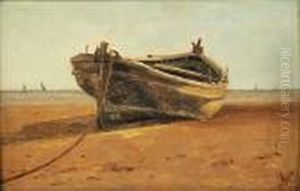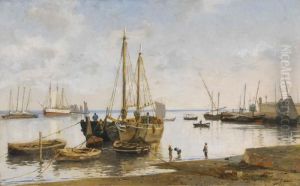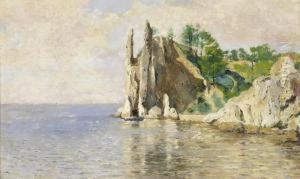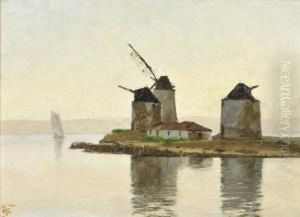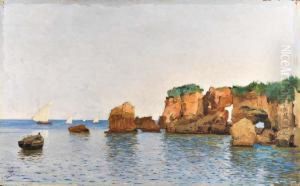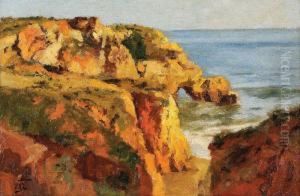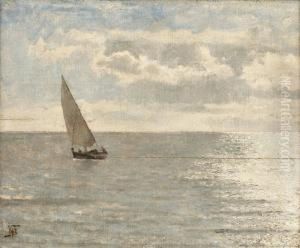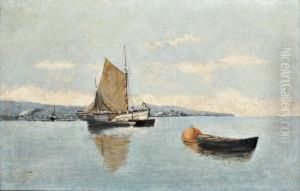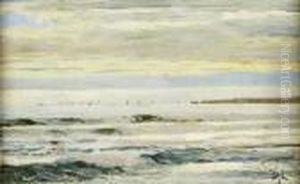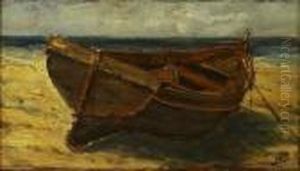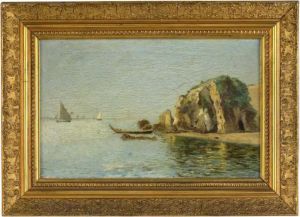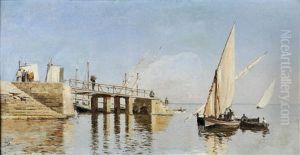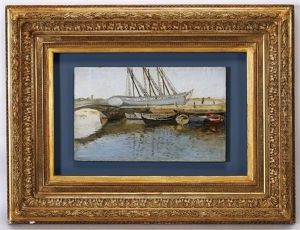Joao Vaz Paintings
João Vaz was a Portuguese landscape painter, considered one of the most significant artists of his time in Portugal. Born on May 13, 1859, in Lisbon, Portugal, Vaz developed an early interest in the arts, which was encouraged by his family. He studied at the Academy of Fine Arts in Lisbon, where he honed his skills and developed a style that was heavily influenced by the natural beauty of the Portuguese landscape.
Vaz's work is characterized by its romantic portrayal of the sea and coastal areas, often depicting scenes of fishermen and their boats. His paintings are noted for their detailed realism, balanced compositions, and luminous quality, which he achieved through his mastery of light and color. Vaz's dedication to capturing the essence of the Portuguese maritime environment made him a central figure in the naturalist movement in Portugal.
Throughout his career, João Vaz received numerous accolades and was recognized for his artistic contributions. He participated in various exhibitions, both in Portugal and abroad, and his work was met with critical acclaim. In addition to painting, Vaz also taught at the Academy of Fine Arts, sharing his knowledge and passion for art with the next generation of Portuguese painters.
João Vaz's legacy is preserved not only through his paintings but also through the Museu João Vaz, located in the municipality of Sintra, which was established to honor his life and work. The museum houses a collection of his artworks, personal items, and documents related to his career. Vaz's influence on Portuguese art continued to be felt long after his death, and he is remembered as a key figure in the country's cultural history. João Vaz passed away on January 1, 1931, in Lisbon, leaving behind a rich body of work that continues to inspire and captivate art enthusiasts around the world.
